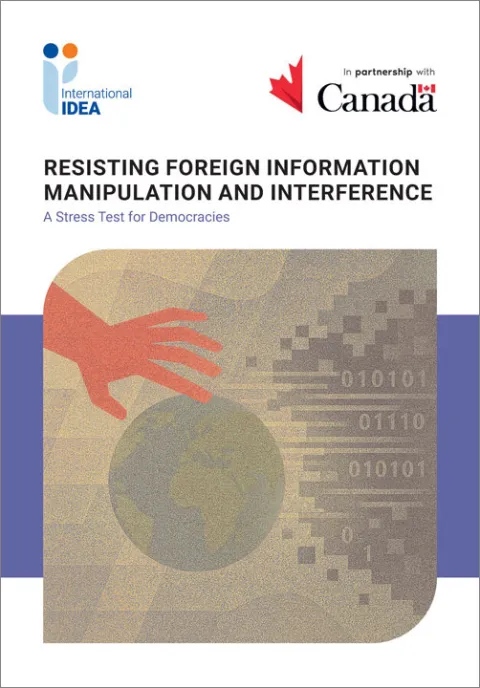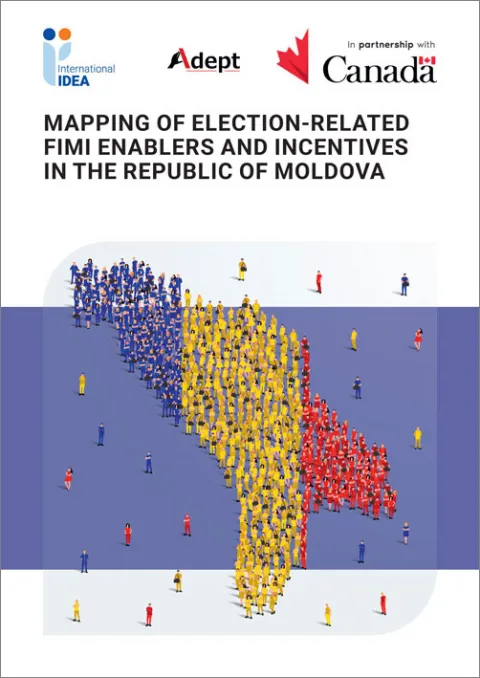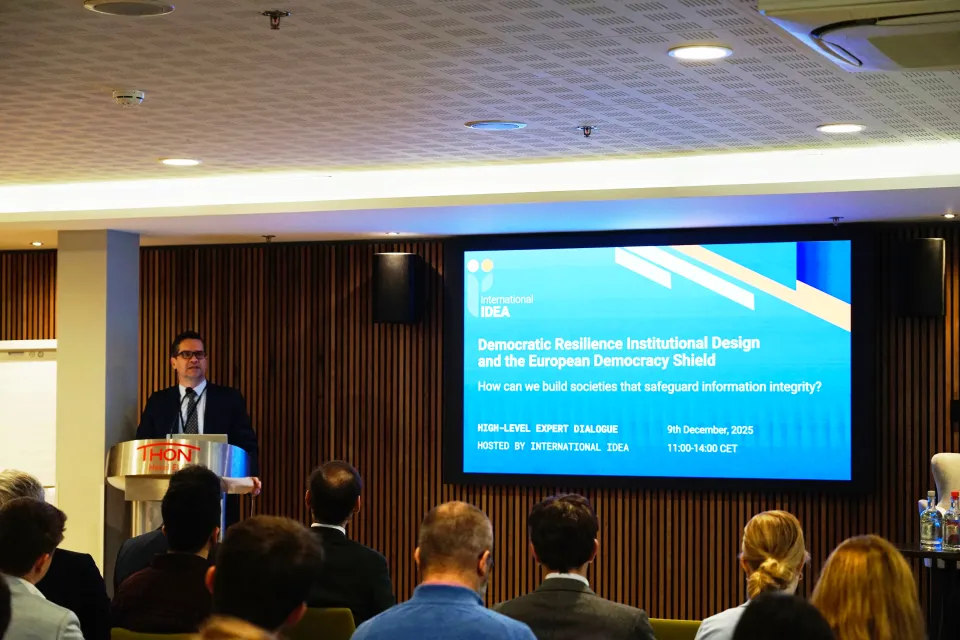Designing for Resilience: Building Institutions to Safeguard Information Ecosystems
In an era of intensifying information manipulation and disinformation, democratic societies are facing increasingly complex threats. Malign influence campaigns—conducted by both state and non-state actors—have exploited vulnerabilities in national information ecosystems, eroding trust, deepening polarization and undermining confidence in democratic processes. A range of initiatives have been launched to counter these threats, but responses remain fragmented and uneven across contexts. The challenge lies not only in detecting and countering disinformation but in addressing the deeper systemic weaknesses that make democracies susceptible to manipulation.
This discussion paper argues that democracies must move beyond ad hoc and siloed approaches to adopt a more systemic, coordinated and whole-of-society response. It calls for the establishment of dedicated national institutions to strengthen collective understanding, support cross-sector collaboration and build long-term resilience. Drawing on open-source materials, expert interviews and comparative analysis, the paper maps key elements that policymakers and stakeholders can use to develop coherent national frameworks.
Details
Contents
Preface
Executive summary
Introduction
1. Background: Information threats and their challenges
2. Why democracies need dedicated institutions for information-based challenges
3. Key elements of institutional design
4. Conclusion
References
Give us feedback
Do you have a question or feedback about this publication? Leave us your feedback, and we’ll get back to you
Send feedbackDesigning for Resilience: Building Institutions to Safeguard Information Ecosystems

| Total views | 2530 |
|---|---|
| Downloads | 200 |
| Rating |
Give us feedback
Do you have a question or feedback about this publication? Leave us your feedback, and we’ll get back to you
Send feedback











